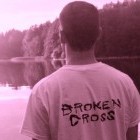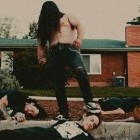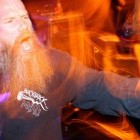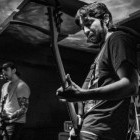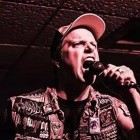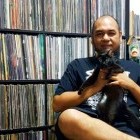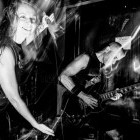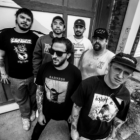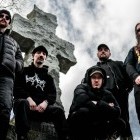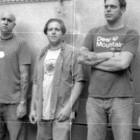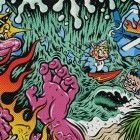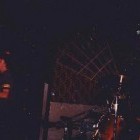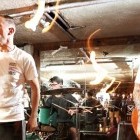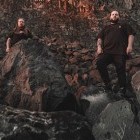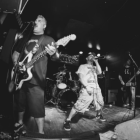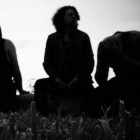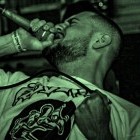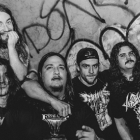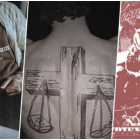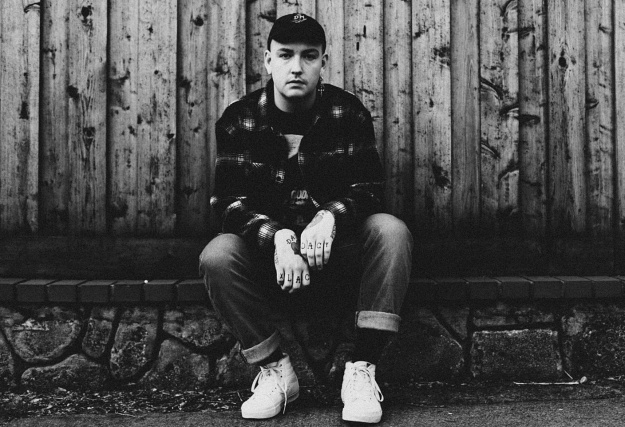
Based out of Portland, OR, King Yosef is a multi-facet artist and producer with infused influences of hip-hop, hardcore punk, metal, industrial, and EBM. I got to chat with him about his journey toward finding his voice, the new album with Youth Code, and the importance of community.
Thank you for your time, Yosef. I bet you're feeling on top of the world right now having this new album with Youth Code and the successes of your solo material. What was your process like in discovering your voice over the years?
Yeah! I am feeling very excited to get this thing out. I think it’s a great step forward into my new territory.
As far as finding my voice, whether it be vocally or lyrically, it really was a lot of trial and error as well as a lot of introspection and trying to figure out what I was about. I think nowadays my voice is essential to the music I want to make.
The aggression in your voice holds a lot of weight in your music—you don't hold back. Some of my personal favorites like "Misfortune," "Lurch," "Noise442," and the infamous "Pity Case," showcase that vocal and sonic journey. In terms of your journey, how did you get to where you are today? What's your origin story?
It's hard to elaborate on how I got to where I am sonically because it feels so painfully obvious on the other side of things but, I had little to no idea when I started.
I come from a more metal-focused background, so when I was younger all I did was try to find the heaviest things I could and play guitar. As I got older, I wanted to record myself so I could start a guitar solo project. Once I had done that, my older brother was rapping at the time and told me, "You should make beats" and gave me some CDs with drum samples on them.
So, in tandem, I am playing guitar all the time, and whenever I get bored I try to make beats. Eventually, I started to hear more and more hip-hop influence in metal, so producing became more serious for me.
I think the first example of me trying to make something for my old band was an interlude which after some time I started doing things within the songs, guitar chops, beats in the songs, etc.
After my band took a back burner, I started producing a lot more for friends I have and getting my chops in production work through forums, and YouTube videos. So, as time went on I got better and better but, as I played metal less the more distorted all my production work came. So now we have hit this point where the lines are extremely blurred for me and I just kept going down that rabbit hole.
I could go into more depth about this whole process but, I don't want to punish you with a book worth of tales. I should also add that Chief Keef's Back From the Dead mixtape was my production awakening that shifted me towards 808's, heavy sounds, etc.
We’re definitely at a turning point in music where artists are getting tired of being placed into a category like being labeled as just a “rapper” or whatever. Why do you think that it's important for artists like yourself who are in that liminal space between genres to keep pushing and blurring the boundaries?
I think the biggest thing about keeping within the confines of a genre, is understanding the tradition and legacy of it, and then taking those things and applying them to your music without just copying things.
Plenty of people say that I am industrial, but if you actually looked at the original industrial bands, I don't actually sound like any of them, I just have elements that you can draw a line to. So, in order to blur boundaries, you have to thoroughly understand the boundaries that way you can push against them and still respect why they were there.
Well worded, man. Understanding is the first step to breaking the chains. From what I understand you live out in Oregon currently. What about living there has contributed to the evolution of your craft?
Yeah, I would say Oregon has shaped my music. This is not a culturally thriving place, so a lot of my understanding of music came from the internet, whereas some people may have direct access to shows and new bands coming through town, my closest place for "bigger" concerts was 4 hours away.
So, I think within that it just made me savor the music, and be somewhat obsessive about whatever artist I was interested in studio footage, live show footage, interviews, etc., which just lends to finding more and more music.
On the other hand, where I live now in Oregon is pretty famously known for its dark and dreary winters. This lends itself to a lot of inside time and sitting around which definitely has shaped my music.
Had I lived somewhere sunny, I don't know if I would ever get in as deep as I did. Plus, the setting of Portland has this dreary mysticism about it that inspires me a lot.
You used downtime wisely with an impressive 74-track discography currently uploaded to your SoundCloud dating back to 5 years ago. How did SoundCloud play a pivotal role in your music career?
It's funny now because the 74 seems so dismal when it comes to the amount of stuff I used to have up on there. If I had never deleted anything I'd definitely be in the thousands.
As far as SoundCloud goes, I got shown it right as the Yung Lean, BONES, Sadboys wave had started so, as I had dug through there I was finding all sorts of stuff that I found inspiring. The big change was when you realized a lot of these people were also just kids with computers at home, and that you could possibly make music together.
So, as I dived more, the more I became a part of a community and found music that resonated with how I want to make music. Finding everyone from Red Mirror (the group I used to be a part of) was pivotal for me. Optic Core's (FKA HELLION) discography had a larger impact on my production style than a lot of things up to that point and from there, what I wanted to make started to seem a lot more obtainable.
SoundCloud definitely threw me onto some muses as well. I actually discovered you through XXXTENTACION in 2017 years back off that Willy Wonka Was a Child Murderer mixtape when you did some vocals and production for it. What did you guys learn from each other during that time together?
It's hard to say anymore. Anything I was doing in that timeframe wasn't new to me when it came to guitar and production, people were just being made aware of it.
I mainly learned after the fact that "hey maybe I should think about who I work with and how they affect my life trajectory and my name".
I can see that in you deciding to work with Youth Code. How did you meet Sara Taylor and Ryan George?
It was all random from my end, honestly. I have been a Youth Code fan for a couple years now.
One day I was out running errands and got a message on Instagram from the Youth Code account that said something like, "Hey man, been meaning to hit you up. Love what you're doing," and then a follow.
Maybe a year after that or so, I was in LA and messaged the Youth Code account about getting a beer if they were free and Ryan took me up on it.
From there, anytime I was in town I'd get ahold of them to hang out.
It’s always those random coincidences that end up being something really special. Good thing you took Ryan up on that beer! The chemistry that you three share on the new record A Skeleton Key Into the Doors of Depression is electrical. Were there times where you all met up to track or was it mainly conducted through vocal stems, maybe a little bit of both?
We almost didn't meet up, which is the funniest part.
All of the instrumentation was done remotely, and then Sara traveled to Portland where we wrote and recorded all of the vocals. I think the remote aspect of the instrumentals was positive as it gave us both room to explore on our own.
What inspired doing a full-length record together and calling it A Skeleton Key Into the Doors of Depression?
We were originally doing some work on each other's solo endeavors until the question was posed of, “Why not do an EP?” Then, after that the first couple drafts, it was coming together too fast for us not to do a full length.
The name from the factor that every song is more or less about trauma, depression, or negative thoughts. Sara was the one who came up with the title.
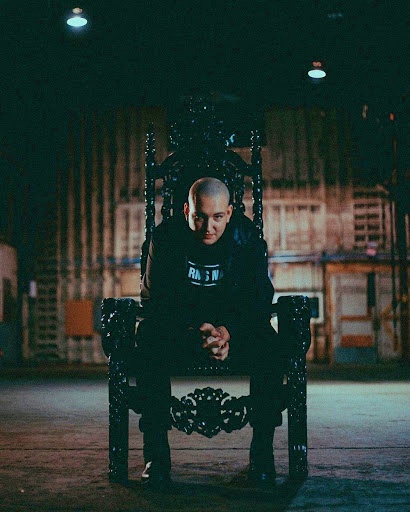
This project emits so many different emotions; from the banger of an opener, “Claw/Crawl”, down to the grand finale of, “Finally Docked." When recording a project like this there’s gotta be a lot of emotion being poured out during the recording sessions. Which track, if not all of them, really stood out to you during the recording of it?
Yeah, there was definitely a lot of emotion going on. I think specifically “The World Stage” had a very visceral feeling when we were tracking it. Overall though, everything is talking about heavy things, so it was all a sort of somber understanding as we were going through it.
You think that song will get its own video as “Burner” did?
As of right now, we don't have any plans for more music videos. With the pandemic, as well as doing this all DIY, the time and resources would have been stretched thin. If another song were to get a video though, I think we've all agreed “Head Underwater” would be the one.
Speaking of the DIY aspect for A Skeleton Key, being an artist myself, I know how much time and effort goes into bringing projects to fruition. What was the most challenging aspect of bringing this project to life?
The most challenging part of this was the deadline for mixing. I do everything for the King Yosef project, but I normally have a bit of time and wiggle room. With this album we had a pretty intense deadline, so the mixing timeline was a lot more crunched than I would normally be okay with.
It worked out in the end, and having another team of people to bring me back down to earth when I get lost in a mix is immensely helpful.
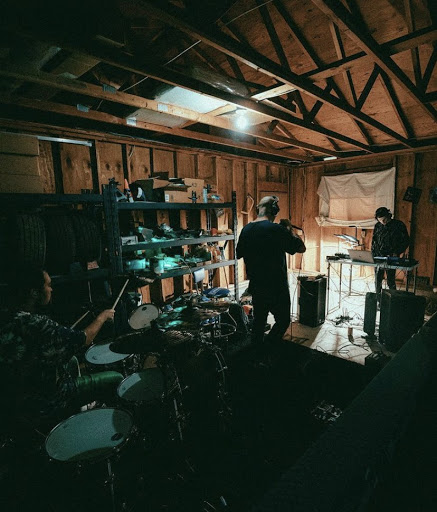
What’s the King Yosef project?
I mean, I am King Yosef but, I also view the music and things I do as the King Yosef project, it helps me differentiate what goes where when it comes to me writing music. As well, there are now live band members of King Yosef, so as I am explaining King Yosef sometimes, it refers to a group of people and not just myself anymore.
Ah I see, collective effort. People often mistake the fact that it’s just one singular person behind the scenes of the art when in actuality there is a whole entourage of people helping to bring the work to light. Why do you think community is important when creating, especially in terms of A Skeleton Key?
Community is important because you need a group of people to let you know when you're going down the wrong path. I'd like to think that most of my friends are open and honest about when they don't like something I'm doing, and sometimes I'll do it regardless but it’s good to have people outside of the project to help bring you to focus.
With A Skeleton Key, one of the biggest things was having two other people to bounce things off of, as well as bring me back to earth when I was too close to something. With our deadline, I wouldn't have been able to get it done if not for outside ears.
How has the cyber collective and community, TRASH, played a role in your development as an artist?
I am cool with a couple of the artists from TRASH but ultimately I haven’t had too much affiliation with them. I think people think of me being close to them simply because artists I work with end up on there a lot and the "Pity Case" video being up on their channel.
What do you have planned for the future of your music, 2021 and beyond?
As for this year, I am changing the lineup to the live band and reconfiguring that, so a lot of troubleshooting ahead. As well, I am heading to the studio two times this summer to finish the recording of my new solo record, and in between then and now I am putting together an EP with merch and hopefully a few videos for release closer to summertime.
Other than that, I will be doing some production work for a few artists that I consistently work with like Zheani, Ghrins, etc.
As for the coming years, touring, music, production, opening a studio and hopefully expanding myself into other types of media and art projects. Who knows, after this last year I am unsure of what will actually happen, but we will see.
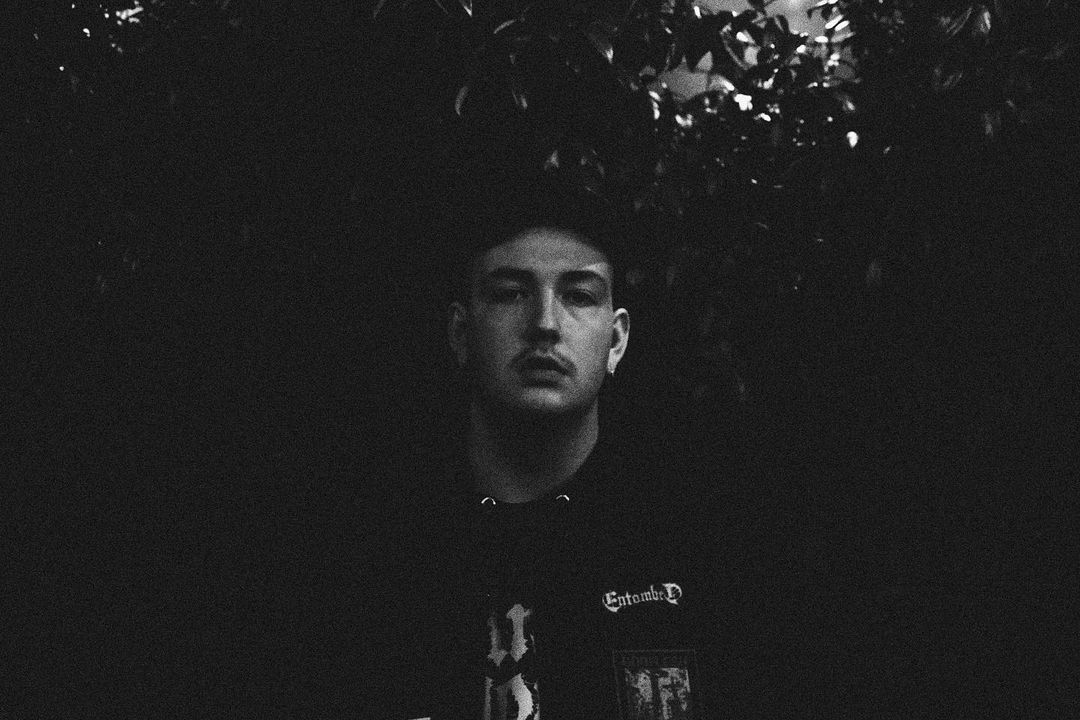
I know I’m stoked to watch all that unfold. Well Yosef, congratulations on the new album and much success to you in your future endeavors. I appreciate your time! Are there any final words you’d like to say before we conclude?
Thanks for taking the time to listen!
My final words are thanks to anyone sticking around or just now finding out about me. The things to come are the clearest vision of King Yosef I’ve ever had.
***
Check out King Yosef's official website to learn more about his music and outside production work.
***
Help Support What No Echo Does via Patreon:
***
Tagged: king yosef

